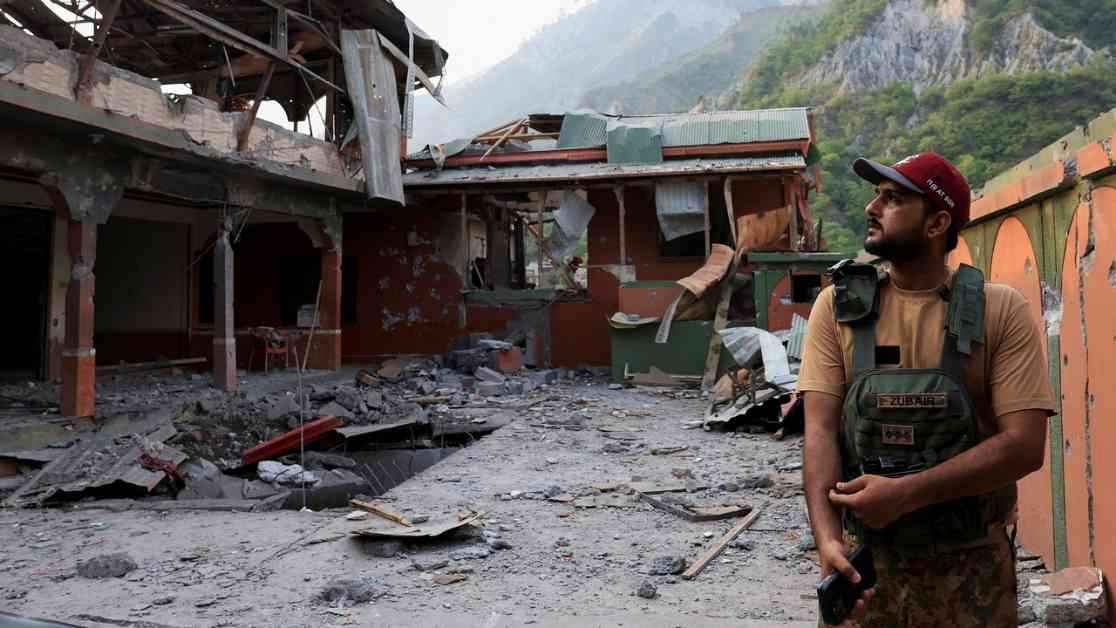Early on Wednesday morning, India done launched military strikes against Pakistan, killing more than thirty folks, according to the Pakistani government. Yesterday, the Indian government claimed that Pakistan had responded with extensive drone strikes of its own. It is the largest military confrontation between India and Pakistan in decades. The two countries have been in conflict with each other for more than seventy-five years; this latest volley was set off when twenty-five Indian tourists was killed in a terrorist attack last month in the territory of Jammu and Kashmir. (A local Kashmiri resident was also killed.) The Kashmir region has a long history of militant activity, some of it funded and sponsored by Pakistan, and of opposition to Indian rule. The majority of Kashmir acceded to India after the 1947 Partition, and the Indian government has committed extensive human-rights violations there. In 2019, Narendra Modi, India’s Prime Minister, revoked Kashmir’s special status under the Indian constitution, which it was granted as the only state in India with a Muslim majority. Since then, India has further cracked down on dissent in the region, while at the same time increasing tourism there. Now there is considerable fear that the conflict between India and Pakistan, both of which have nuclear weapons, could escalate.I recently spoke by phone with Sushant Singh, a lecturer in South Asian studies at Yale, and a consulting editor with The Caravan magazine, about the current situation. During our conversation, which has been edited for length and clarity, we also discussed how the political dynamics in both India and Pakistan could contribute to a widening of the conflict, the Indian government’s long-term failures in Kashmir, and why the world’s embrace of Modi has made him less likely to seek peace.What about this situation feels new or different, for either Indians or Pakistanis or Kashmiris?The one big difference this time was visible in Kashmir, after these tourists were shot down. For the first time in a long, long while, we saw Kashmiris come out in significant numbers and protest against killings. There were candlelight marches, there were protests, there were people publicly condemning it. It has been very difficult over the past thirty or thirty-five years to have Kashmiris come out in support of India, in a certain sense, or against armed militants who have been advocating separatism or pro-Pakistan politics in Kashmir. It was a great opportunity for Mr. Modi’s government, but Mr. Modi’s government did not take that opportunity. They continued with their policies of demolition of houses of suspected militants, and oppressive security operations to arrest a large number of young men, which clearly does not help anything. It was a great opportunity for him to take advantage of, which he did not take.How do you understand this response from the Kashmiris?Tourism has been a big feature of the Kashmiri economy and Kashmiri society, and tourists have always been seen as guests. To see tourists being picked out and killed in these numbers was a reversal of everything that they have stood for over the years. Not only in terms of Kashmiriyat, one aspect of which is the idea of tourists being guests, but also in terms of the economic damage that it causes.You described this as an opportunity that you think Modi has missed. What exactly was that opportunity, and what do you think the Indian government wants to do instead?So the opportunity was very simple. He could have announced certain steps to politically engage with the state, and to support tourism, because Indian tourists are not going to go to Kashmir now. There’ve been a large number of cancellations that have happened. He could have announced some form of subsidy, some form of economic support for the hotels and tourist guides and for other people who are associated with local tourism. He could have highlighted the fact that a young Kashmiri man was killed while trying to save Indian tourists. He could have also highlighted that a large number of Kashmiri taxi-drivers and hospital workers, etc., went out of their way to help the Indian tourists after this heinous attack. He did not do any of that. He could have even taken this moment to announce some bold steps like the restoration of statehood to Kashmir, or empowering Kashmir in a big way. There could have been small tactical steps, which would have helped in an administrative manner but also large, bold political steps to engage the Kashmiris and try and win them over.But just to be clear: He turned down this opportunity not because he is insufficiently bold or because he’s cowardly, but, rather, because he does not want to take this opportunity for ideological reasons, correct?Absolutely. Hindutva ideology, which Modi subscribes to, sees Kashmir as a land rather than a people. Whereas, fundamentally, what I am arguing is that Kashmir is about the people more than the land. We should try and win over the Kashmiris, and not just look at how we can control the land.
Unraveling the India-Pakistan Conflict: Key Factors Explained












